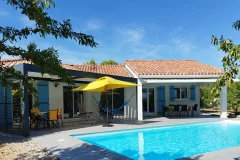- Home
- Guides to France
- Work & Business
- Micro-Entrepreneur
- Accounting
Guides to France
Property in France
- Buying property in France
- Buying off-plan in France
- French property auctions
- SCI Ownership
- French property rights
- Renting property in France
- Selling property in France
Building & Renovation
- Building a house in France
- French planning system
- Property renovation in France
- French property rights
- French Mobile Homes
Work & Business
Money & Taxation
- Banking in France
- French mortgages
- Currency Exchange
- Taxes in France
- French inheritance
- French home insurance
Living in France
Useful Links
AdvertiseNetwork Sites
Helpful Links
News
Services
- French Health Insurance
- French Home Insurance
- Inheritance Tax & Law Consultancy
- French Planning
- Transfer Money to France
- Metric Unit Conversion

If you require advice and assistance with the purchase of French property and moving to France, then take a look at the France Insider Property Clinic.
Guide to Micro-Entrepreneur Business in France
- What is a Micro-Entrepreneur?
- Business Registration
- Social Security
- Income Tax
- Business Rates
- Status of Spouse
- Should You Elect for Micro-Entreprise Status?
- VAT
- Payment of Taxes and Social Insurance
- Business Accounting
- Running a Chambre d'Hôte
- Multiple Business Activities
- Professional Insurance
- Second-Hand Sales
10. Micro-Entreprise Business Accounting
One of the benefits of micro-entrepreneur business tax status is an exemption from the panoply of accounting regulations and processes that govern the operation of those who use the standard régime réel basis of taxation.
It includes exemption from the need to prepare a set of annual accounts.
Of course, nothing prevents a micro-entrepreneur using a more elaborate system of accounting, but their only legal accounting obligations are as follows.
i. Accounting Records
Micro-entrepreneurs are required to maintain a daybook of cash receipts (livre des recettes), recording the date and amount a payment was received, the method of payment and any relevant invoice number.
Those who are engaged in buying and selling products, or who run a cafe or restaurant or chambre d'hôte are also required to maintain a daybook of expenditure (livre des achats), in a similar form to the cashbook.
There are standard paper and on-line journals available that can be used, but it would be perfectly in order to simply create and maintain your own on-line spreadsheet.
Those involved in sale of second-hand furniture, vehicles and precious metal objects are required to also register with prefecture as Revendeurs d’objets mobiliers and maintain suitable records.
ii. Invoices
A micro-entrepreneur is obliged to invoice for sales or services, on which they should state their business registration number - their 'Siren'.
As most are exempt from VAT (TVA), a micro business is legally obliged to make a declaration on all invoices 'TVA non applicable, art. 293 B du CGI.'
The invoice must also be in French, and contain your address and a description of the service rendered or product sold.
iii. Bank Account
Where your turnover is greater than €10,000 a year then you are obliged to maintain a separate bank account for the business, through which all receipts and payments are processed.
Below this figure you can use your existing personal account.
If you exceed €10,000 in the year, you can still continue to use your personal account, although where the threshold is exceeded for two consecutive years then you must open a separate account.
Most banks in France offer a 'professional' bank account (compte professionnel) for business owners, for which they often impose a not inconsiderable management charge.
In law, there is no need for the bank account to be anything other than a personal account in your own name, which is often available free of charge, although there may be a charge for a credit/debit card or overdraft facility.
iv. VAT
Since 2018 it has been possible for micro-entrepreneurs who reach the VAT exemption threshold limit to retain their micro status, but they are then required to start charging VAT on their products/services. Clearly, in such circumstances the accounting requirements change significantly.
Next: Running a Chambre d'Hôte
Back: Payment of Taxes and Social Insurance
The Guides to France are published for general information only.
Please visit our Disclaimer for full details.
-
Stunning Architect-Designed Villa in the Heart of the Var, just Steps from the Sea5Var (83)
€1,380,000
-
Luxury French Residence with 360° Panoramic Views in the Dordogne / Gironde Region of Southern France9Dordogne (24)
€1,150,000









